Toxicity can be harmful to any relationship. Given that you’re here, it’s safe to assume that you know that firsthand. Perhaps, troubled by toxic patterns in your relationship that means a lot to you, you decided to explore ways to fix your dynamic with your partner. That led to an unsettling realization: that you’re part of the problem. Which, in turn, led you to wonder how to stop being toxic in a relationship.
This self-awareness, no matter how rudimentary, can be deeply uncomfortable. However, denial or turning a blind eye to your troublesome traits will not aid in your goal to remove toxicity and rebuild a healthier relationship with your partner. The only way forward is to acknowledge your toxic traits, understand where they stem from, and work toward replacing them with healthier behavior patterns.
We’re here to help you do just that, in consultation with Dr. Aman Bhonsle (Ph.D., PGDTA), who specializes in relationship counseling and Rational Emotive Behavior Therapy. Let’s take a closer look at toxic behavior in relationships and ways to address it.
5 Signs You Are Toxic As A Partner
Table of Contents
A toxic relationship drains both partners physically and emotionally. There is a sense of uneasiness, and you feel suffocated, disrespected, under-loved, and undervalued, and everything about your relationship seems unenjoyable. Often when trapped in such a relationship, we tend to place the blame on our partners or the circumstances. Dr. Bhonsle says, “However if you truly want to remove toxicity from relationship dynamics and rebuild your connection, it’s equally important to look inward and introspect.”
Who knows the signs you are toxic as a partner may be staring you in the face. It’s vital to accept responsibility and see your actions and behaviors for what they are. It will pave the way for the more critical question of, “How can I stop being a toxic person?” Think about what your faults in the relationship might be so you learn how to stop being a toxic girlfriend, boyfriend, or partner. It’s the first step toward unlearning toxic behaviors in a relationship. The first step toward that change is recognizing the signs you are toxic as a partner.
Related Reading: What To Look For In A Relationship? The Ultimate List Of 15 Things
1. An inflated sense of self is a toxic trait
A person who has an inflated view of themselves is likely toxic. Such a person thinks they are better than others, and that includes their significant other. They think they are smarter, cleverer, and more important. If you assert that superiority in your relationship, then you could be the problem.
This tendency is mostly seen in people who try to hide their insecurities and their feelings of inferiority. If you can relate to this feeling of being better than everyone around you and you feel that you’re doing your partner a favor by settling for them, you do need to reflect on the question, “How can I stop being a toxic person?” That’s because fixing a toxic relationship requires accountability from both partners.
2. What is toxic behavior? Manipulation
There can be a whole spectrum of toxic behaviors and one person’s toxic traits can be different from another’s. However, if there is one trait that remains common to all toxic people, it is manipulation. Manipulation can range from gaslighting someone to lying to them, hiding information, and love-bombing them to get them to do as you want.
Emotional or romantic manipulation is a way of gaining power and control over another person and amounts to toxic behavior in relationships. If you make your significant other feel sorry for expressing their concerns, use affection or silent treatment to get them to do what you want, or invalidate their needs and desires by making them seem inconsequential, you’re being manipulative. It’s not hard to see why learning how to stop being toxic in a relationship is crucial if you want to salvage your connection with your partner.

3. Is the relationship all about you? If yes, you are the toxic one
If your feelings always take center stage in your relationship, you might be the problem in your toxic relationship. Signs you are toxic as a partner can look something like this:
- Only your wants matter: The entire relationship revolved around your wants and needs, from food choices and movie choices to bigger decisions like taking the relationship to the next level, deciding who you interact with as a couple, and making investments
- Your partner feels compelled to listen to you: You command and your partner obliges without any questions. This is one of the warning signs of a toxic relationship. Since you’re the one holding the reins, it’s plain to see that this toxicity is stemming from you
4. Are you a control freak?
A need for control is another classic toxic trait. If you feel the need to control every aspect of your partner’s life and feel uneasy if your partner doesn’t live by your rules, it’s a sure sign you’re toxic. Here is what an unhealthy need for control may look like:
- Making decisions on your partner’s behalf
- Picking fights if your partner does something you don’t approve of
- Controlling what your partner eats in the garb of caring for their health
- Controlling what your partner wears under the pretext that you like them dressed a certain way
- Controlling who your partner socializes with because you don’t want them falling into bad company
- Wanting a say in your partner’s career decisions and how they manage their finances
Related Reading: Moving On From A Toxic Relationship – 8 Expert Tips To Help
5. Toxic people demand attention 24/7
If you are the quintessential high-maintenance girl or boy and need unending attention from your partner, it’s a clear sign you display toxic behavior in relationships. Falling in love with someone doesn’t mean making them the center of your universe or demanding the same from them. In fact, space is a key tenet of healthy relationships, without which either one or both partners can begin to feel trapped and suffocated. If you’re guilty of this, you need to give some serious thought to how to change toxic behavior.
How Does Being Toxic Affect Your Relationships?
“When you are exhibiting toxic ways in a relationship, it becomes hard for people to love you, rely on you, trust you, and find comfort in you. When toxicity begins to creep into a relationship, the dynamic gets wrecked. Toxicity can manifest in many forms — hostile behavior, being negligent, selfish, vindictive, and clingy. Irrespective of its nature, it drives a wedge between partners,” says Dr. Bhonsle.
As you can see, toxic behavior in relationships can hamper your bond. Here’s how:
- Your partner will lose their sense of self: The saddest thing about being a toxic partner is that you will watch your partner’s personality fade away. They will become aloof, checked out of the relationship, agreeable, and stop acting like their true selves
- The love wanes: The toxic behavior does not just affect your partner but can also sound the death knell for your relationship
- You are no longer their safe space: Toxic tendencies can push your partner away from you. They may stop confiding in you and instead of prioritizing the relationship seek comfort in the company of friends, family, and loved ones
There is no room for contention that unless you work actively to remove toxicity from your relationship, you risk damaging it beyond repair. Remember, even if a lot of damage has been done, it is never too late to change yourself for the better. The journey of that change begins with addressing a rather uncomfortable question: how can I stop being a toxic person?
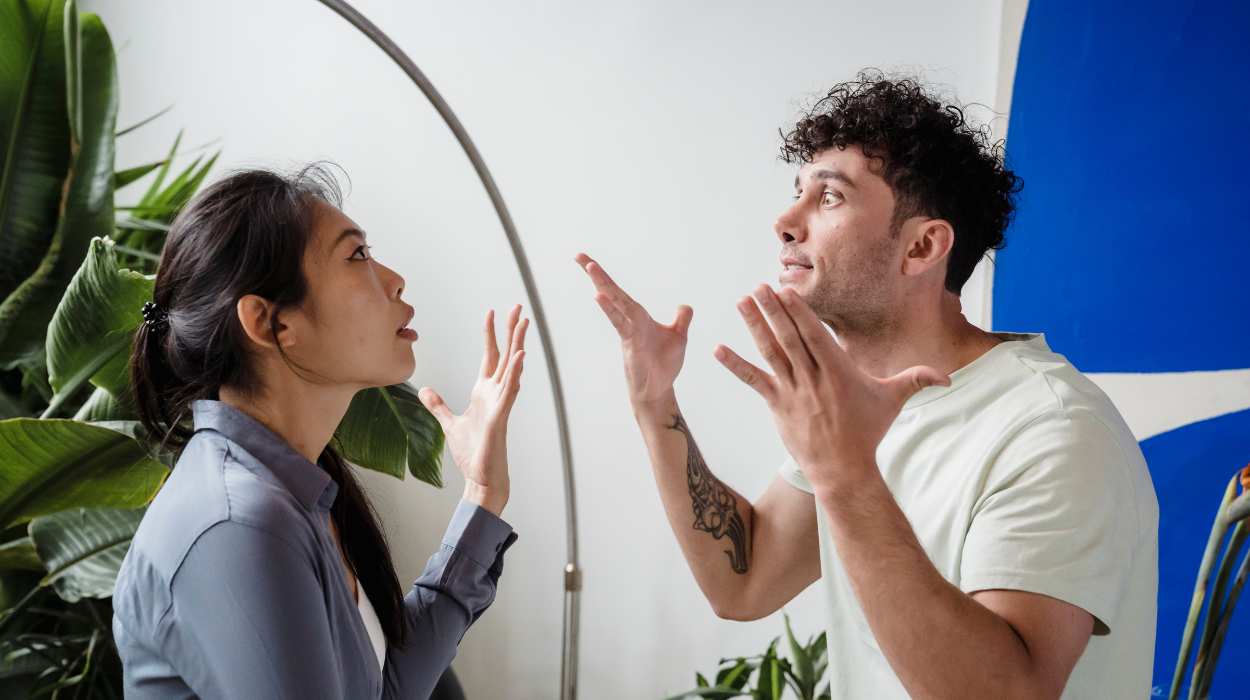
11 Expert Tips To Stop Being Toxic In A Relationship
Displaying toxic tendencies in a relationship does not necessarily mean that you don’t love your partner or want to cause them harm. In fact, toxic behaviors can often be an unconscious projection of one’s deep-seated insecurities and complexes, which could be rooted in your childhood, early life experiences, or past relationships. If that’s the case, you’d want to break free from these unhealthy patterns and work toward building a healthier relationship with your partner.
However, figuring out how to stop being toxic in a relationship and weeding out behavior patterns that are the root cause of most of your relationship issues isn’t always easy. That’s because, over time, these toxic traits become ingrained in your personality. But that doesn’t mean it’s impossible to remove toxicity. If you’re intent on doing the work, these expert-backed tips will pave the way for a healthier relationship:
1. Learn to recognize toxic behaviors
The first step toward addressing a problem is to acknowledge that it exists and recognize its tell-tale signs. Now that you know what the signs you are toxic as a partner are, be mindful of them and see which ones you can spot in your interactions with your partner.
- Do you feel the need to control your partner?
- Do you think less of them?
- Do you resort to manipulation?
- Are you excessively needy?
- Are you a selfish partner?
You may be toxic in more than one way, so pay attention to your behaviors and make note of reactions and responses that fall in the unhealthy territory.
2. Find a relationship therapist or counselor
Without the help of mental health professionals, it can be difficult to understand the nature of your toxicity and what might be causing it. Only a therapist will help you unravel your behavioral patterns and discover the reason behind them. They will show you the path to healing and becoming a better version of yourself and teach you how to be in healthy relationships. All of these processes are integral to how to stop being toxic in a relationship.
“Therapy becomes crucial in this situation because you need a neutral person to understand the entire scenario. Many couples have shared their experience on how talk therapy helped and made them feel better. A licensed professional will know how to guide the person in stressful situations,” says Dr. Bhonsle. If you can relate to the signs that indicate that you’re the toxic one in your relationship and are looking for help to break your behavior patterns, Bonobology’s counseling services are here for you.
3. How to be less toxic: Start small
Changing established behavior patterns that you may have learned or imbibed as a way of self-preservation takes time. Don’t expect change to happen overnight. Dr. Bhonsle says, “When you find out you are the toxic one in the relationship and seek to change the course of your actions, don’t look for immediate results. Instead, look for change. Change is not a guarantee of success. It’s a guarantee of momentum.” To make sure you stay on the track of progress:
- Keep putting in the work to learn how to be less toxic
- Recognize the small changes in your behavior and appreciate yourself for them
- Don’t beat yourself up for slip-ups. Progress is never linear

4. Shift from blaming to understanding
This is exactly what happened in my previous relationship. When my partner and I were going through a rough patch, there was constant blame-shifting and name-calling. When I was blamed for something, I’d accept it as constructive criticism and tried to do better by understanding his standpoint. But when my former partner was blamed for something, he refused to come to an understanding and would take it as an insult. He would blame me for blaming him. That made me realize how blame-shifting in a relationship harms it.
If you are wondering how to change toxic behavior, look at how you assign blame. To figure out how to stop being toxic in a relationship, you need to find ways to be more understanding and not take your partner’s concerns as an affront. Take a step back and look at the entire situation from another perspective.
5. How not to be toxic: Own up to your actions
If I have learned something from my relationships, it’s that the simple act of taking accountability can change things for the better. If you are wondering how to remove toxicity from your relationship, it is probably because you do not reflect enough upon your actions.
Naturally, then, the answer to how to stop being toxic in a relationship will come to you when you start taking responsibility for your actions and the reaction that follows as a consequence. If you said something to hurt or offend your partner, be sure to own up to it. Focus on your own and your partner’s well-being by apologizing as soon as you realize what you did wrong, and make amends with your significant other.
Related Reading: 10 Signs You Are In A Loveless Marriage
6. Focus on self-growth
“Look for self-growth. Compare where you were last year and where you are now. Compare all kinds of growth, from financial to emotional and relationship growth. Everything matters in the making of you as a person. If you don’t see yourself growing in any aspect of your life, then it’s time you build yourself up,” says Dr. Bhonsle.
When you shift the focus to being a better person, it becomes much easier to be a better version of your relationship too. Build up your own self-worth and try to improve yourself. Those who are in healthy relationships have a much better sense of self and make their mental health their foremost priority. This will create a ripple effect and make it easier for you to learn how to be less toxic toward your partner.
7. How to not be toxic in a relationship: Show love
Have you ever stopped and wondered why we love the way we love? It’s because most of the time, even subconsciously, how we love our partner is the way we wish to be loved. Each person has a different way of loving. Often, friction in a relationship can arise when there is a gross mismatch in the love languages of both partners. This friction can augment toxic behaviors. If you’re wondering how to not be toxic in a relationship, it’s important to address the core issue triggering conflict and discontent. Here is how you can do it:
- Love with your words: Instead of saying hurtful things or resorting to emotional or verbal abuse during a fight or argument, try to use kinder words or phrases to diffuse the tension
- Spend quality time with them: Don’t just laze around in bed after a fight or eat dinner quietly, without speaking to them. Try to make it up to them. Bring out a board game, or a new bottle of wine to cheer them up
- Do not give them the silent treatment: While it is important to take time off and cool down after an argument, do not give your partner the silent treatment for too long, especially when they reach out. It is one of the signs of an abusive relationship
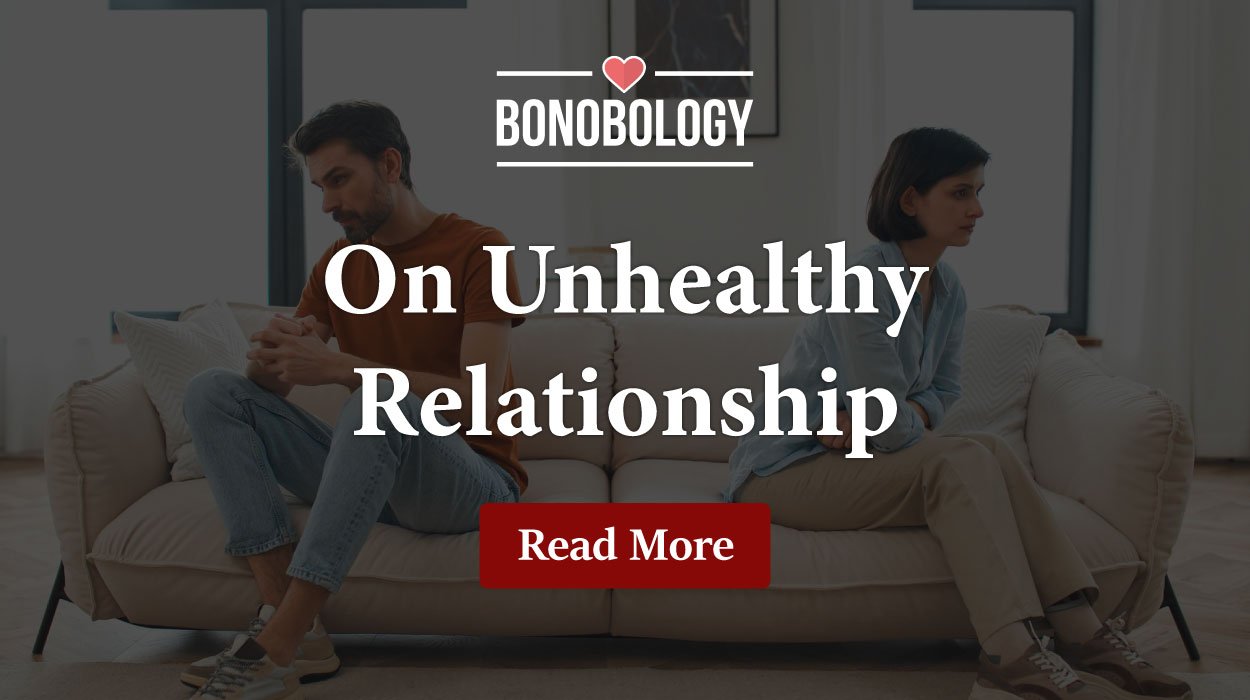
8. Communicate your worries
Want to learn how not to be toxic as a partner? Communication is the answer. Stonewalling won’t resolve the problems you are facing with your partner. In fact, it will only create more. Communication problems in relationships are all too common and tend to exacerbate relationship issues.
Counter it by practicing open communication in your relationship. Express all your worries, troubles, sadness, and frustration openly — yes, practicing vulnerability can be easier said than done but it will go a long way in helping you understand how to change toxic behavior. In doing so, be mindful of the words you use. Make sure you don’t hurt or offend your partner in the name of an open discussion. Openness allows you to speak out about the things that bother you.
9. Work toward cultivating empathy
Empathy is the backbone of every healthy relationship and toxic people are no empaths. It is time to change that if you want to know how to change toxic behavior. With a lack of empathy, it gets difficult to bond and build a meaningful relationship with your partner.
“One of the ways you can learn how to stop being a toxic girlfriend/boyfriend/partner is to cultivate empathy. You can do this by challenging your thoughts, paying attention to your biases, and examining with curiosity where they stem from. At the same time, try to see situations from your partner’s point of view, and step out of your comfort zone and try new activities with your partner,” says Dr. Bhonsle.
Related Reading: Here’s How To Stop Constant Arguing In A Relationship
10. Let go of ego
You will know how to stop being toxic in a relationship when you decide to let go of your ego. Dr. Bhonsle says, “Nothing scars a relationship like ego, which is a giant wall that comes between two people. When you create that wall too high and too strong, nobody can break it down. Nobody can even climb that wall to reach you on the other side of it. Ego can manifest in many forms — I come from a rich family and thus I ought to have an upper hand in the relationship. I make more than my partner and that gives me the right to make all the decisions without being questioned. I am a man, I must be in control of the relationship.
“The only time you will know to let go of your ego is when it is damaging your relationship or has already done the damage. An egoistic person hesitates to ask for help. However, if you want to know how to not be toxic in a relationship, shunning your ego is essential.”
11. Assume positive intent to stop worsening a toxic relationship
Negative thoughts and constantly questioning your partner’s intent will most certainly damage the foundation of your relationship. No wonder you end up wondering, “Why am I being toxic in my relationship?” If you keep questioning your partner’s intent, you will start believing you are in a negative relationship.
When you assume negative intent, you become skeptical of every action your partner takes, and that is considered toxic behavior. Not only does it worsen your mental health, but it also makes things very difficult for your partner. When you look for the worst in people, that’s what you will find. But when you look for the best in people and assume positive intent, life will get easier and more peaceful. And you should especially try to be more trusting with your loved ones.
12. Invite feedback
“Invite feedback about your behavior in the relationship. Whether it’s your partner, your family members, or just a close friend, ask them if they think you are being toxic in a relationship. If you find yourself lost and in need of a support network, ask the people who love you to find the lost parts of yourself. People who love you will spot your mistakes and know if you are being uneven with yourself. You’ll need to reconnect with them in a vulnerable way to stop being in a toxic relationship,” says Dr. Bhonsle.
Yes, it’s not easy to accept feedback without getting defensive but it is the only way forward. Unless you hear from another person what your unhealthy behaviors look like, how will you find an answer to what is toxic behavior and whether you exhibit it?

13. Maintain your personal space
One of the significant ways to stop being toxic in a relationship is to make time for yourself and be alone, as a form of self-care. Most toxic people tend to have low self-esteem. They radiate their toxicity toward others as a way to boost their low image of themselves. To learn how to stop being toxic in a relationship, start practicing self-love. Learn to cater to your needs all by yourself.
This will help bring about a shift in your perspective, and help you see that your partner — or anyone else for that matter — cannot be responsible for your happiness and well-being. Once you recognize that, the weight of unrealistic expectations will lift. This, in turn, will go a long way in helping you determine how to be less toxic.
14. Set and respect boundaries
Healthy relationship boundaries are key to building trust and respect — two strong antidotes to toxicity. So, if you want to learn how not to be toxic, commit to setting and respecting firm boundaries in a relationship. These boundaries help both partners maintain their sense of individuality in a relationship and prevent them from becoming unhealthy enmeshed with one another — a breeding ground for toxicity.
Boundaries can be about,
- How you fight and resolve conflict
- Respect for each other’s privacy
- Deciding how much of your life — access to passwords, finances, devices — you want to share with your partner
- How you communicate with each other and how often
- How you interact with each other’s families
- What intimacy in your relationship may look like
The answer to how to not be toxic in a relationship can be as simple as sitting with your partner and discussing what is acceptable and what’s not, for both of you. Once you reach a consensus, enforce your boundaries and respect your partner’s.
15. Be cognizant of the progress you make
As I’ve said before, progress is neither linear nor swift. However, keeping track of it and being cognizant of the positive changes you make by practicing the above-mentioned tips on how not to be toxic — along with any other ways you learn on your own, or perhaps while working with a mental health professional — is crucial to keep moving in the right direction. Remember, it is the small wins that add up to big results. Unless you’re aware of these small wins, it can be easier to get disheartened and fall back into old patterns.
Key Pointers
- Toxicity can be damning to a relationship, and it can be unsettling to discover that you’re the cause of it
- If you have a heightened sense of self, tend of manipulative or controlling, need a lot of attention, and act selfishly, you might be showing toxic behavior in your relationship
- Toxic behavior can impact the self-esteem of the person at the receiving end, weaken a couple’s bond, and push partners away from each other
- The answer to how to stop being toxic in a relationship lies in recognizing problematic behaviors, seeking professional help, communicating well, setting boundaries, being open to feedback, focusing on self-growth, and practicing accountability
So now you know how not to be toxic as a partner. Pay attention to your toxic behavior and be mindful of it. Concentrate on self-care, healing, and taking time to grow as a person. Firstly, pat yourself for asking how to not be toxic in a relationship. It’s the first and the most difficult step to take. And you’ve conquered that. The rest will come naturally if you focus on adopting positive habits.
How To Connect With Your Partner On A Deeper Level – Expert Helps
Lack Of Affection And Intimacy In A Relationship — 9 Ways It Affects You
Your contribution does not constitute a charitable donation. It will allow Bonobology to continue bringing you new and up-to-date information in our pursuit of helping anyone in the world to learn how to do anything.

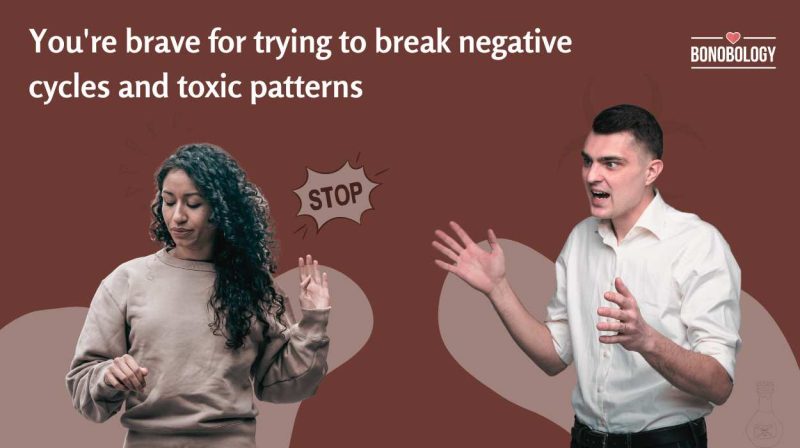



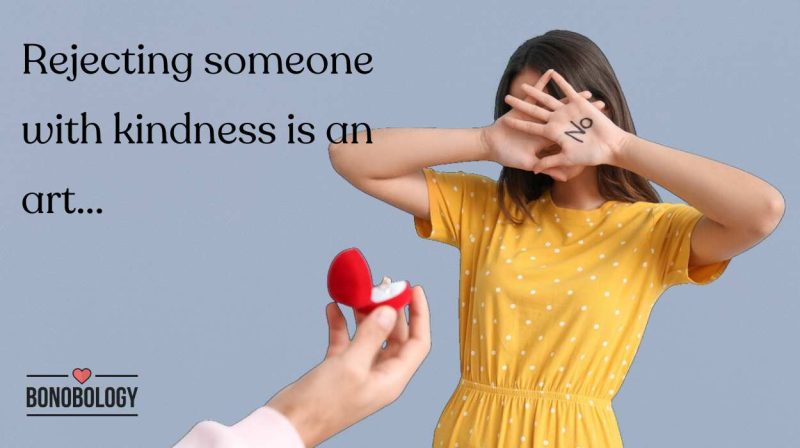
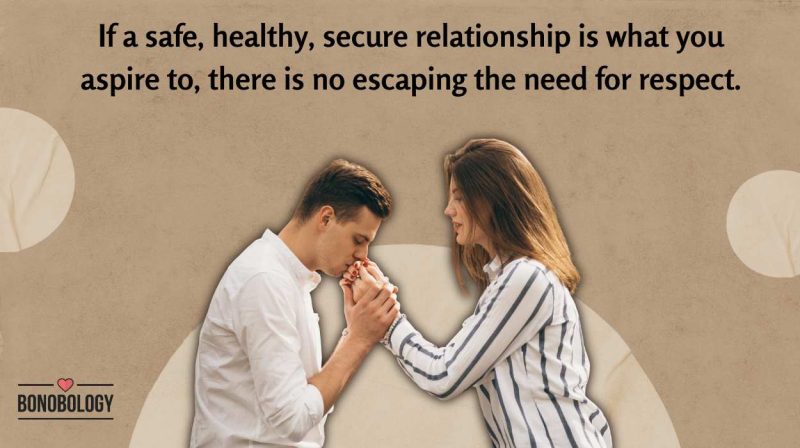

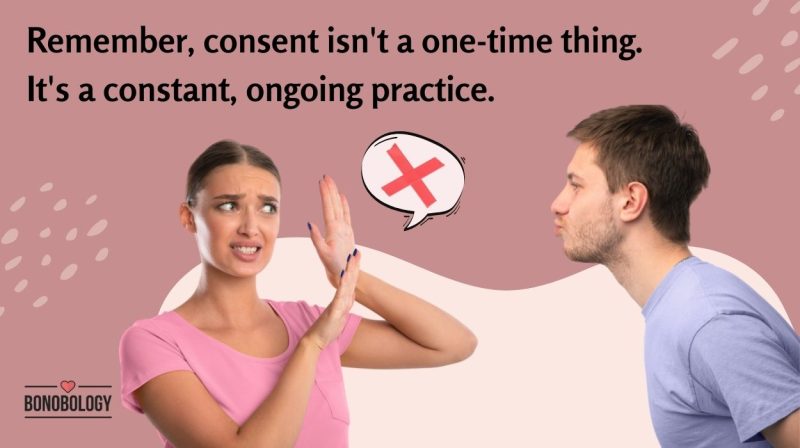
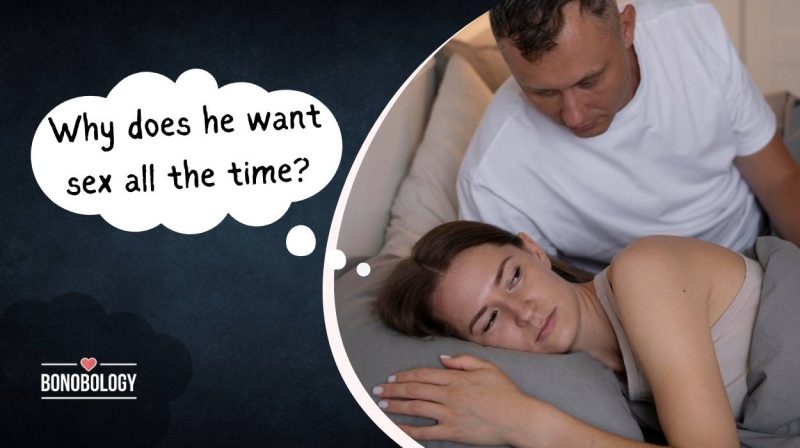
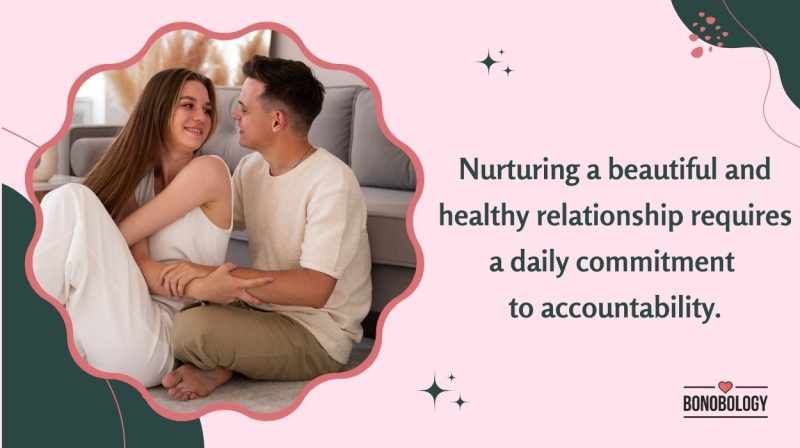
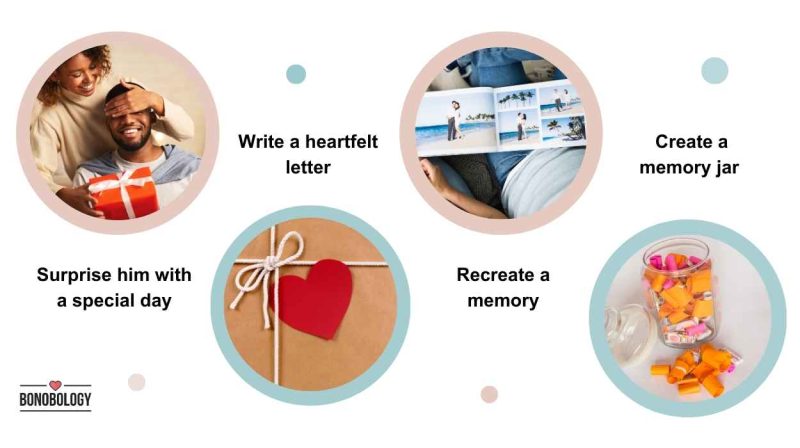
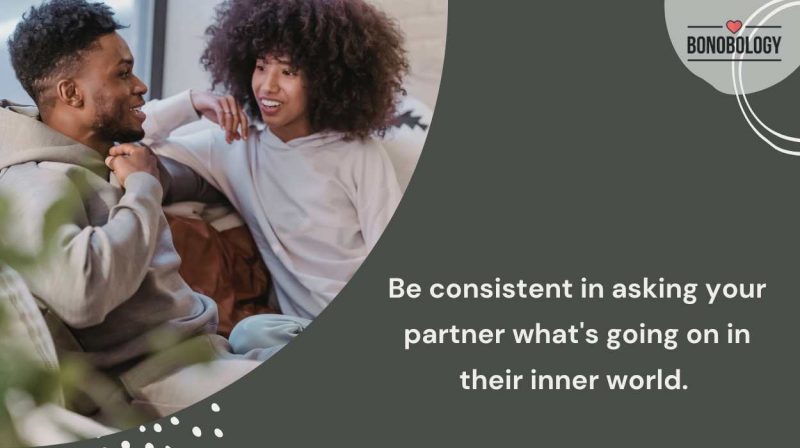
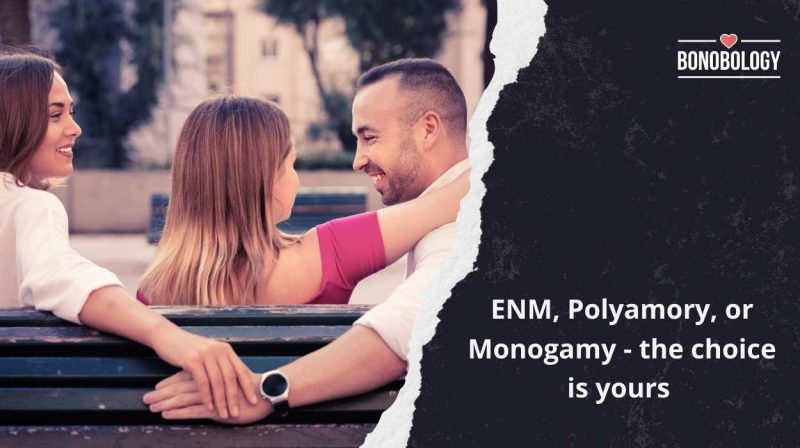
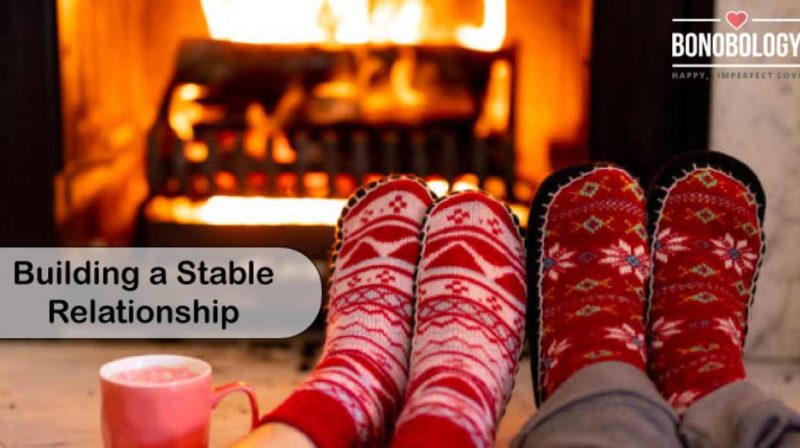
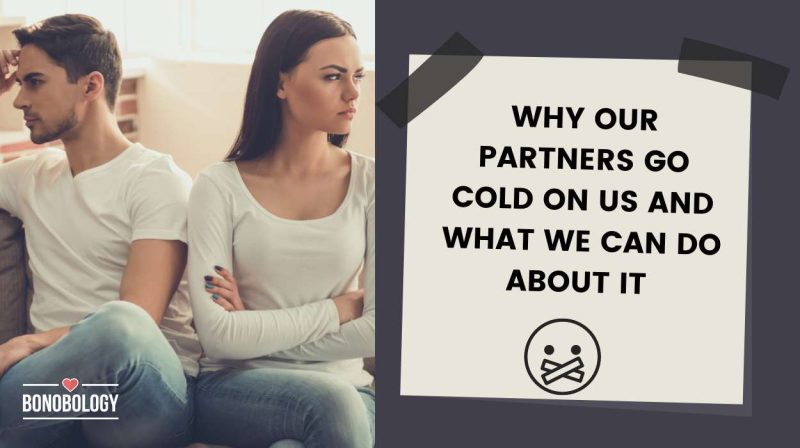

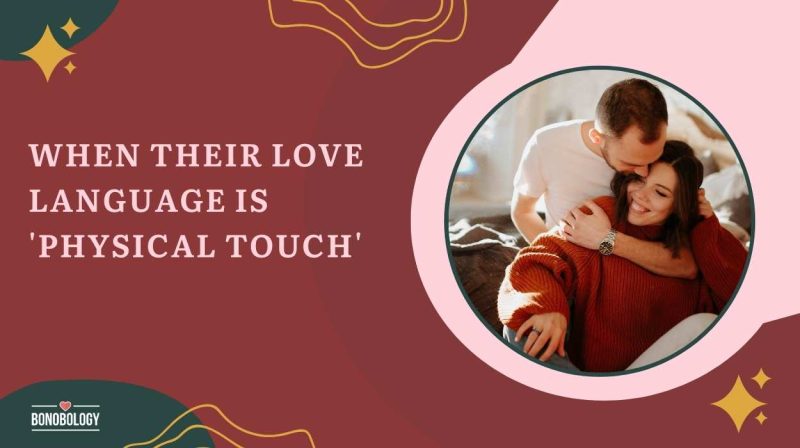
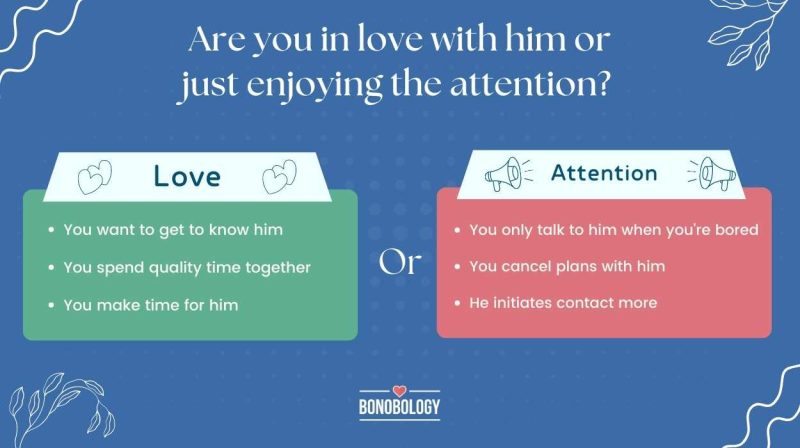
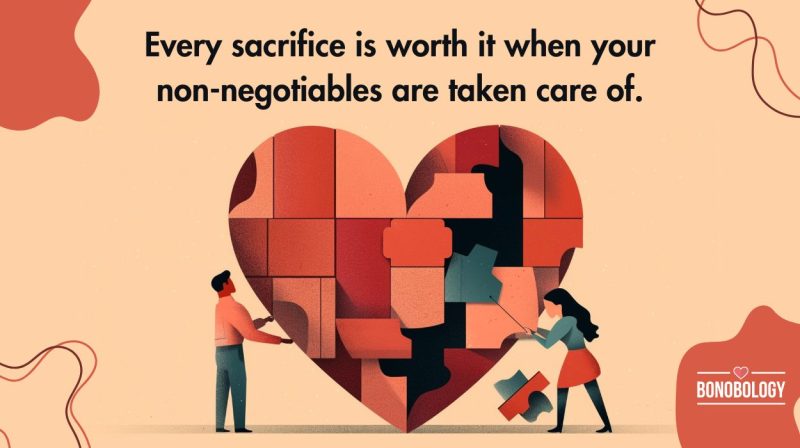
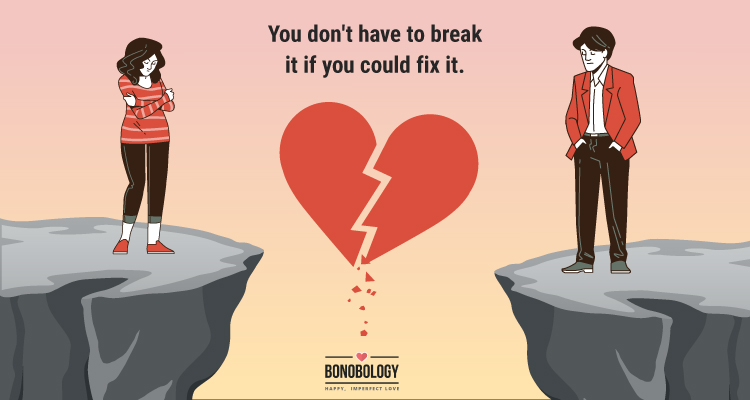
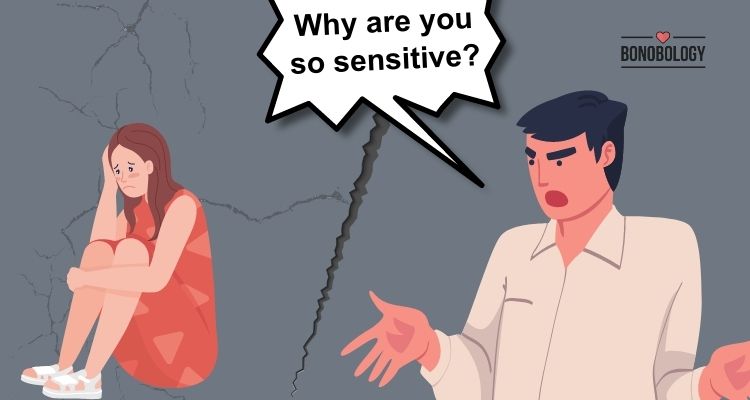

Featured
6 Tips for Helping Your Partner Quit Smoking in Their 50s
How He Treats You Is How He Feels About You — Is It True?
How To Let Someone Down Easy With Kindness And Grace — 13 Tips
How To Show Respect In A Relationship — 9 Ways
The Pitfalls Of Nice Guy Syndrome: How It Affects Relationships
Navigating The Complexities Of Consent In Modern Relationships
11 Ways To Deal With A Sexually Demanding Husband
Accountability In Relationships – Meaning, Importance, And Ways To Practice
How To Apologize To Your Boyfriend: 15 Ways
10 Thought-Provoking Relationship Check-In Questions for Deeper Connection
Is A Monogamous Relationship Right For You? 11 Questions To Help You Find Out
10 Signs You Are In A Truly Stable Relationship (Even If You Feel Otherwise)
7 Subtle Signs Your Partner is Quiet Quitting Your Relationship
Secure Relationships – What Are They And What Do They Look Like?
Physical Touch Love Language: What It Means With Examples
Do I Like Him Or The Attention? Ways To Find Out The Truth
17 Non-Negotiables In Relationships You Must Never Compromise On
15 Ways To Solve Relationship Problems Without Breaking Up
9 Common Narcissist Gaslighting Examples We Hope You Never Hear
The Most Important 7 Qualities Of A Healthy Relationship